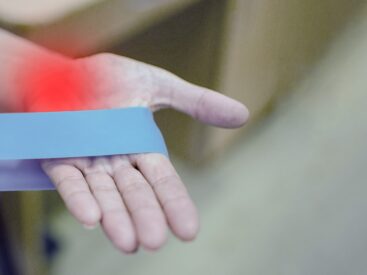Medication can play an important role in improving time perception for individuals with Attention Deficit Hyperactivity Disorder (ADHD). Medication has been shown to improve the ability to accurately estimate and measure the passage of time, although it is not a cure for ADHD or the associated time perception problems. This article will explore the use of medication to improve time perception in individuals with ADHD and discuss the potential benefits, risks, and considerations for such treatment.
Understanding ADHD And Time Perception
Attention Deficit Hyperactivity Disorder (ADHD) is a neurodevelopmental disorder characterized by inattention, hyperactivity, and impulsivity. It is estimated that approximately 11 percent of children aged 4 to 17 in the United States have been diagnosed with ADHD. Individuals with ADHD often have difficulty with executive functioning, including time perception. Adhd and time perception involve the ability to accurately perceive the passage of time, including estimating the duration of events, comprehending temporal concepts such as “now” or “later,” and having a sense of future events. Difficulties with time perception among those with ADHD can lead to challenges with academic performance, organization, and relationships.

More Know About Of Stimulant Medications
Stimulant medications are the most commonly prescribed medications for Attention Deficit Hyperactivity Disorder (ADHD). Stimulants, such as Adderall, Ritalin, and Concerta, are typically prescribed to children, adolescents, and adults who are diagnosed with ADHD. These medications work by increasing the level of dopamine and norepinephrine in the brain, which can help to improve focus and attention, decrease impulsivity, and reduce hyperactivity. In addition to providing symptomatic relief, stimulant medications have been found to have a positive effect on time perception for those with ADHD.
Stimulant medications are the primary treatment for ADHD and have been found to have a positive impact on time perception. Stimulants work by increasing the amount of dopamine and norepinephrine in the brain, which is thought to improve attention, concentration, and impulsivity. Stimulants can also help with time perception by increasing the speed of information processing and improving the ability to accurately estimate the duration of events. Common stimulant medications for ADHD include Adderall, Ritalin, and Concerta.
Benefits Of Medication In Improving Time Perception
Medication is most commonly used to target the symptoms of Attention Deficit Hyperactivity Disorder (ADHD), such as difficulty focusing and impulsivity. However, it can also help to improve time perception for those suffering from ADHD. Time perception is the ability to perceive the passage of time accurately. This can be particularly difficult for those with ADHD as they often struggle to accurately estimate how much time has passed and may also experience difficulty managing their time effectively. Medication can help to improve time perception by enabling individuals to focus better on tasks and to better control their impulsivity.
Research has found that stimulant medications can have a positive effect on time perception among those with ADHD. A study examining the effects of stimulant medications on time perception among children with ADHD found that those taking stimulants had improved accuracy in estimating the duration of events, as well as improved performance on tasks that required understanding temporal concepts such as “now” and “later.” Other studies have found that stimulant medication can improve the ability to accurately estimate the duration of events, as well as improve academic performance and organization.
Challenges Of Medication For ADHD
Although stimulant medications can have a positive effect on time perception, there are potential drawbacks. Stimulant medications can have side effects, including decreased appetite, headaches, insomnia, and irritability. Additionally, there is a risk of developing a dependence on the medication, and some individuals may be more sensitive to the effects of the medication than others.
Strategies For Maximizing Of ADHD Medication
For individuals taking stimulant medications for ADHD, there are strategies for maximizing the benefits of the medication. It is important to take the medication as prescribed and to keep track of how the medication is affecting the individual. If the individual experiences any side effects from the medication, it is important to discuss these with the prescribing doctor. It is also important to take the medication at the same time each day to ensure that the effects are consistent.
Additionally, it can be helpful to practice relaxation techniques, such as yoga or meditation, to help manage any anxiety or stress that may be associated with taking the medication. Finally, it is important to have open discussions with the prescribing doctor to ensure that the medication is working as intended and to make any necessary adjustments.
Conclusion
The role of medication in improving time perception for ADHD is undeniable. Medication can help reduce distractibility, improve executive functioning, and increase overall cognitive functioning, which can help individuals with ADHD better manage their time. Although medication is not a cure, it can be a powerful tool to help those with ADHD lead more meaningful, successful lives.

Francis Burns is an avid writer from Louisiana. With a Bachelor’s in English and a background in journalism, Francis has been writing for a variety of media outlets for the last five years. He specializes in stories about the local culture and loves to fill his work with inspiring words. When not writing, Francis enjoys exploring the outdoors of Louisiana and photographing nature.




